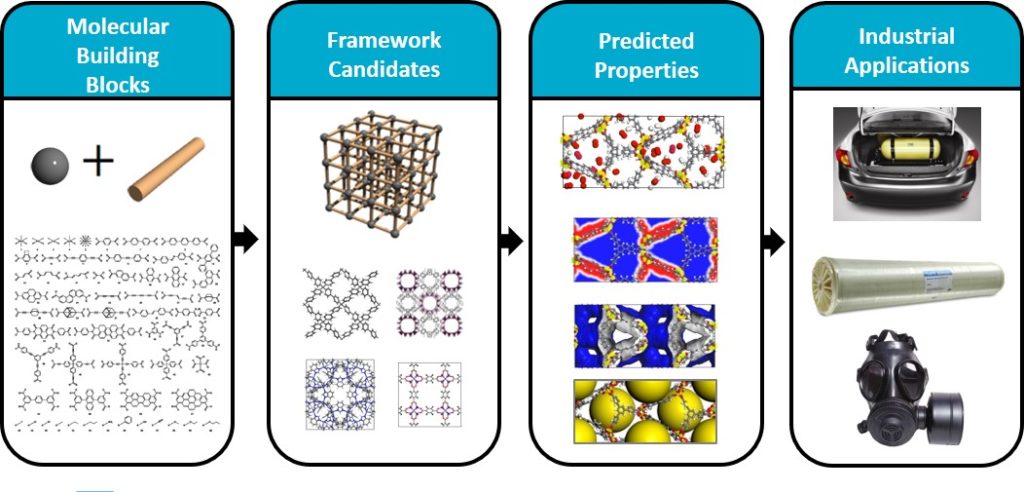Virtual Screening of Nanoporous Materials has become a powerful capability within CSIRO using a combination of machine learning, molecular simulation and big data management to accelerate new materials discovery. Many structure-property predictors have been developed, collected and applied on candidate materials to guide experimentation efforts. This project has involved the development of a material database (catalogue of over 2 million stuctures) that is linked to the structure-property predictors through python workflow scripts written by the Accelerated Computing group. This high-throughput approach to virtual screening will accelerate the discovery of materials for applications such as petrochemical catalysts, water filtration membranes, energy storage, gas sieves, contaminant adsorbents, solar thermal collectors, protective films and fertilizer releasers.
Virtual screening is based upon the underlying principles of porosity, surface area, binding energy, adsorption and guest-diffusion rates, that are critical for the function of interest, consequently offering the most promising candidates for certain applications. This concept can be translated to many materials and applications such as metal-organic frameworks for carbon capture, polymers for film coatings, organic molecules for solar cells, self-assembled amphiphiles for sensing and nano-structures for various molecular machines. This unique capability relies on the growing materials database, the collection of eTools and the workflow control centre that utilizes our supercomputing advantage.

